Το κρεββατοστρώσι και οι τύχες του από το υστεροβυζαντινό στο μεταβυζαντινό δίκαιο
Ενότητα:
Μελέτες Ιστορίας Δικαίου
Τίτλος μελέτης
Το κρεββατοστρώσι και οι τύχες του από το υστεροβυζαντινό στο μεταβυζαντινό δίκαιο
Γλώσσα: Ελληνικά, Νέα (1453-)
Τίτλος εντύπου
Επετηρίς του Κέντρου Ερεύνης της Ιστορίας του Ελληνικού Δικαίου
Γλώσσα: Ελληνικά, Νέα (1453-)
Αριθμός τόμου
46
Είδος εντύπου
Επετηρίδα
Έτος έκδοσης
2016
Περισσότερα...
Συγγραφέας/ Εκδότης
Τάνταλος , Μάριος Θ.
Περισσότερα...
Αριθμός σελίδων
191-212
Γλώσσα
Αγγλικά
Περίληψη
Μ. ΤΗ. Tantalos: Krevatostrosi and its development from Late Byzantine to Post-Byzantine law The evolution of Byzantine and post-Byzantine customary law is not well known. An example of an institution based on customary law is krevatostrosi. Krevatostrosi is the claim of the surviving husband, provided that the couple is childless and there is no will on behalf of the deceased wife, on the bedding as a share of his spouse’s property. Its origins lie in the late Byzantine period as manifested by a few templates of notarial acts. In the post-Byzantine period the institution of krevatostrosi can be traced in many notarial acts, usually marital agreements, originating mostly from the islands of Naxos and Andros. Krevatostrosi is also considered in decisions of the Patriarchal court regarding inheritance law. Lastly, it is also incorporated in manuals of post-Byzantine law in connection to regulations of formal Byzantine and post-Byzantine law. In the course of the eighteenth century however, krevatostrosi in some regions, and particularly in the island of Skyros, was broadened to include not only the bedding of the marriage bed but also real estate assets, which were part of the dowry. Krevatostrosi in this broader sense, used in marital contracts, was an exception to the rule that family property should remain within the family. Krevatostrosi, in this more expansive sense, arguably served to entice the groom by making marriage more financially attractive for him. The institution of krevatostrosi presents a fine example of how an oral custom, as is always the case, is gradually recorded, then coexists with formal law, and it is even used as a means to achieve a social purpose
Θεματική ενότητα
Μεταβυζαντινό δίκαιο-Αστικό δίκαιο-Κληρονομικό δίκαιο
Βυζαντινό δίκαιο-Αστικό δίκαιο-Κληρονομικό δίκαιο
Λέξεις-κλειδιά, συναφείς ἠ αναφερόμενες νομικές πηγές
Λέξεις-κλειδιά: εθιμικό δίκαιο, Βυζαντινό δίκαιο, μεταβυζαντινό δίκαιο, κρεββατοστρώσι, πατριαρχικό δικαστήριο, δικαιοπρακτικά έγγραφα, Νάξος, Άνδρος, Σκύρος, Χίος. Key-words: customary law, Byzantine law, post-Byzantine law, krevatostrosi (bedding), Patriarchal court, notarial acts, Naxos, Andros, Skyros, Chios
Creative Commons
Αναφορά Δημιουργού - Μη Εμπορική Χρήση - Παρόμοια Διανομή 4.0 Διεθνές - CC BY-NC-SA

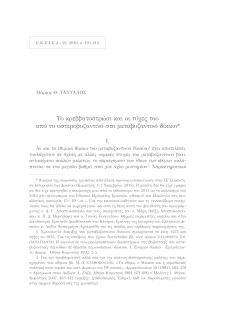
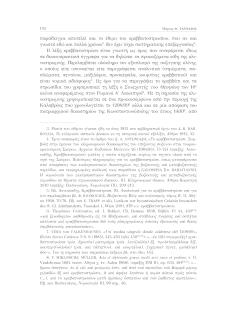

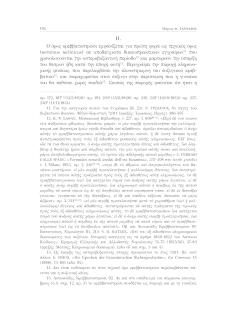
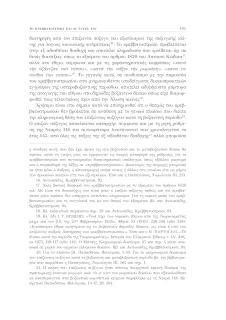
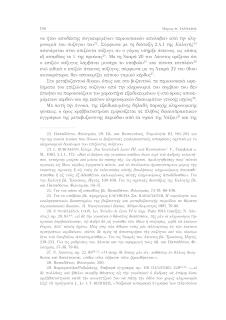


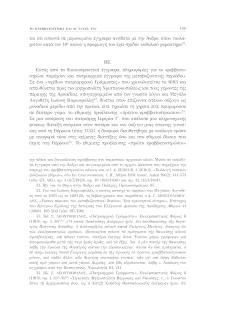
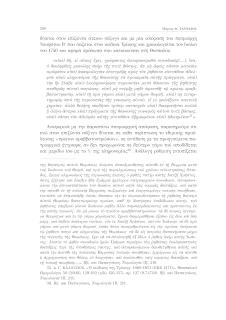
 Ξεφύλλισμα pdf
Ξεφύλλισμα pdf